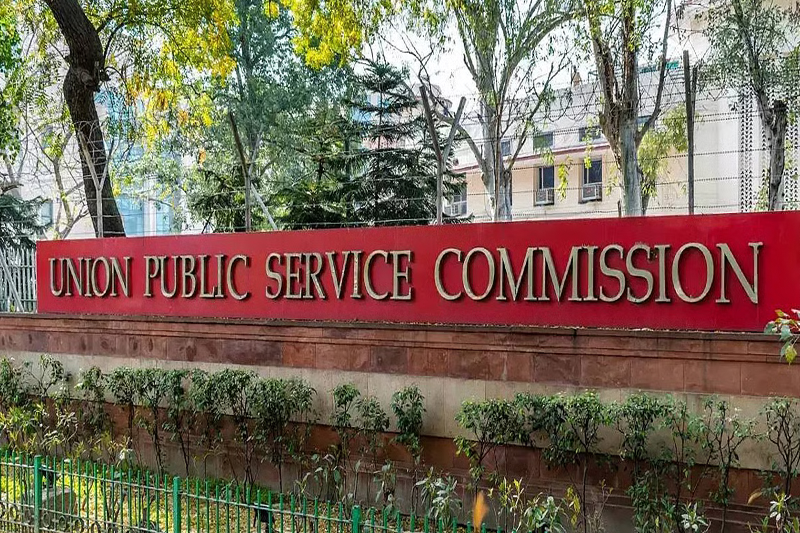
UPSC to Commemorate 100 Years with Year-Long Centenary Celebrations Starting October 1
A Historic Milestone for India’s Premier Recruitment Body
The Union Public Service Commission (UPSC), India’s apex constitutional body responsible for recruiting officers to the country’s most prestigious government services, is set to celebrate a monumental milestone—its centenary year. Marking 100 years of service, the UPSC will officially launch a year-long series of events and initiatives beginning October 1, 2025, continuing through to October 1, 2026.
The announcement was made following a recent meeting chaired by UPSC Chairman Ajay Kumar, highlighting the commission’s commitment to transparency, meritocracy, and fairness that has stood the test of time since its inception.
The Origins and Evolution of UPSC
The UPSC traces its roots back nearly a century, established on October 1, 1926, in accordance with the Government of India Act, 1919, and recommendations from the Lee Commission in 1924. Initially named the Public Service Commission, it was later rebranded as the Federal Public Service Commission in 1937. Following the adoption of the Indian Constitution on January 26, 1950, the institution acquired its current name, the Union Public Service Commission.
Throughout its history, UPSC has maintained a reputation as the custodian of merit-based recruitment for top government positions, including the Indian Administrative Service (IAS), Indian Foreign Service (IFS), Indian Police Service (IPS), and other critical civil services.
Celebrations to Honor Legacy and Inspire Future Progress
Chairman Ajay Kumar underscored the significance of the centenary celebrations as both a moment of reflection and a springboard for future advancements. “Since its inception, UPSC has been a symbol of transparency, fairness, and meritocracy, ensuring the selection of the most deserving candidates through a rigorous and impartial process for senior-level positions in government services,” Kumar said.
He emphasized that the centenary year offers an opportunity to honor the commission’s rich legacy while identifying areas for improvement and innovation. “It is also an occasion to plan a roadmap for the next 100 years of glory for the UPSC,” he added.
Planned Activities and Initiatives During the Centenary Year
The UPSC plans to roll out an array of events and initiatives to celebrate this historic occasion. A distinctive logo and a tagline symbolizing the UPSC’s dedication to public service and nation-building will be unveiled as part of the celebrations.
In addition, new reforms and initiatives aimed at modernizing the recruitment process and enhancing transparency are expected to be launched. These innovations will build upon the commission’s tradition of impartiality while adapting to evolving administrative and technological demands.
Employee Involvement and Inclusive Planning
A noteworthy aspect of the centenary celebrations is the active involvement of UPSC employees in shaping the event calendar. Chairman Ajay Kumar highlighted that inputs and suggestions from staff members were solicited and have contributed to the planning process. “It is our endeavour to make them an integral part of the centenary celebrations. We have received some truly valuable suggestions to work on,” he noted.
This inclusive approach not only boosts employee morale but also ensures that the celebration reflects the collective spirit and dedication of those who work behind the scenes to uphold UPSC’s high standards.
The Role of UPSC in Nation-Building
Since its establishment, the UPSC has played a crucial role in nation-building by selecting the best human resources to manage and govern the country. The civil services examinations, administered annually by UPSC, are regarded as among the toughest and most competitive in the world. These exams identify talented individuals to serve in key administrative, diplomatic, and law enforcement roles, impacting governance and public policy at every level.
The centenary celebrations serve as a reminder of the importance of these functions and the trust placed in UPSC to maintain the integrity and excellence of the selection process.
Looking Back to Move Forward
The centenary provides a moment to look back with pride at a century’s worth of accomplishments and challenges overcome. From its origins under colonial governance structures to becoming a vital pillar of India’s democratic administration, UPSC’s journey mirrors the nation’s own evolution.
At the same time, the commission is poised to embrace new challenges of the 21st century. Leveraging technological advancements, enhancing inclusivity, and streamlining processes will be key focus areas during and beyond the centenary year.
Summary: Key Highlights of the UPSC Centenary Celebration
- Duration: The year-long celebration will run from October 1, 2025, to October 1, 2026.
- Official Launch: Events begin on October 1, 2025, marking exactly 100 years since UPSC’s founding.
- Leadership: The celebration planning and execution are led by UPSC Chairman Ajay Kumar.
- Symbolism: A new logo and tagline will be introduced to represent the Commission’s centenary spirit and values.
- Events and Reforms: Various cultural, educational, and reform-oriented initiatives will be organized throughout the year.
- Employee Engagement: UPSC staff have actively contributed suggestions, ensuring collective participation in the celebrations.
- Legacy and Future: The centenary will honor UPSC’s historic contributions while setting a visionary roadmap for the future.
Conclusion: A Century of Excellence and Commitment
The UPSC centenary celebrations mark not just 100 years of an institution but a century of upholding fairness, transparency, and meritocracy in public service recruitment. As India continues to grow and face new governance challenges, the UPSC remains a cornerstone in selecting the leaders who will shape the country’s future.
With the launch of this year-long celebration, UPSC reaffirms its mission and renews its commitment to excellence, making the centenary a significant chapter in its illustrious history.



